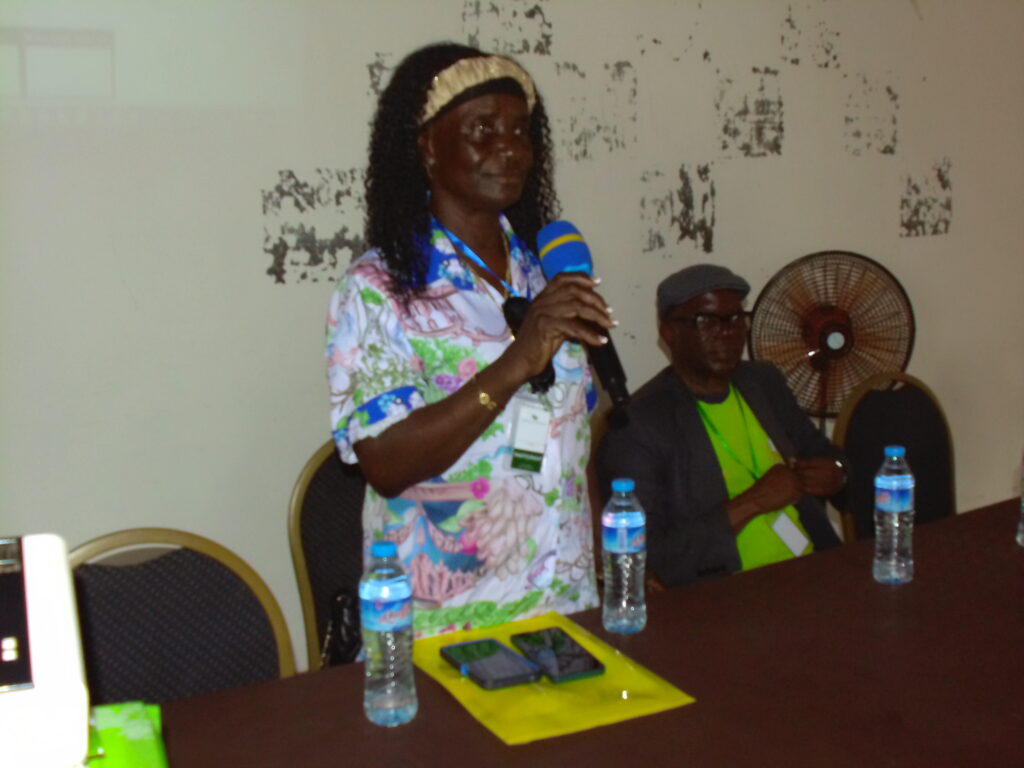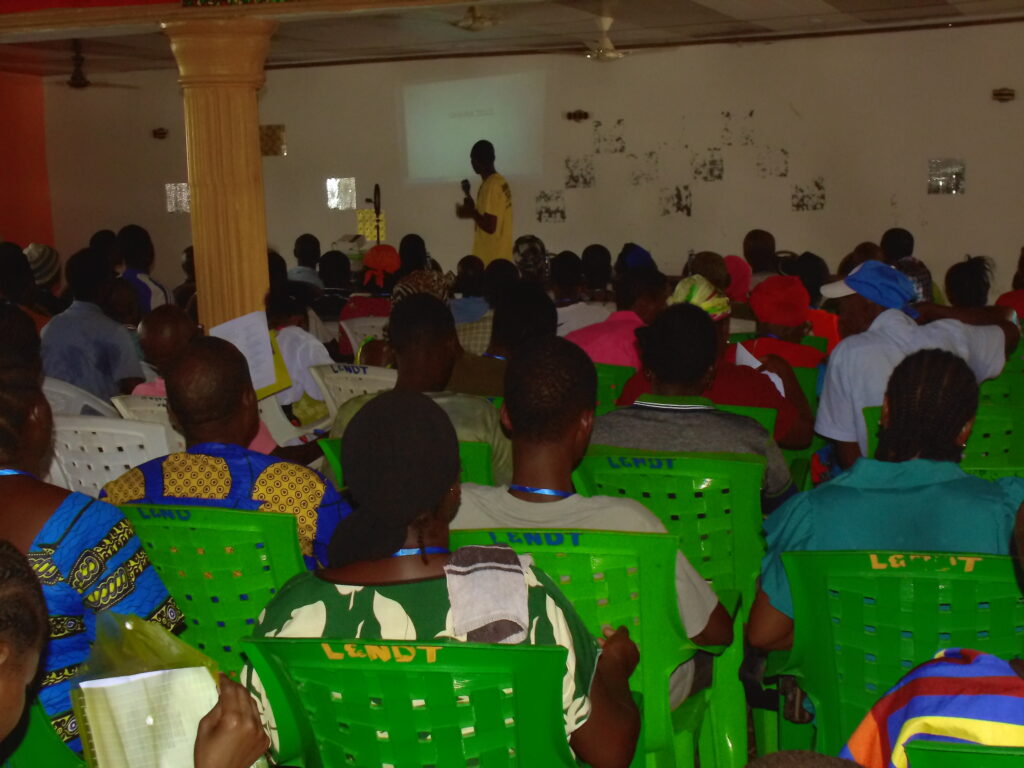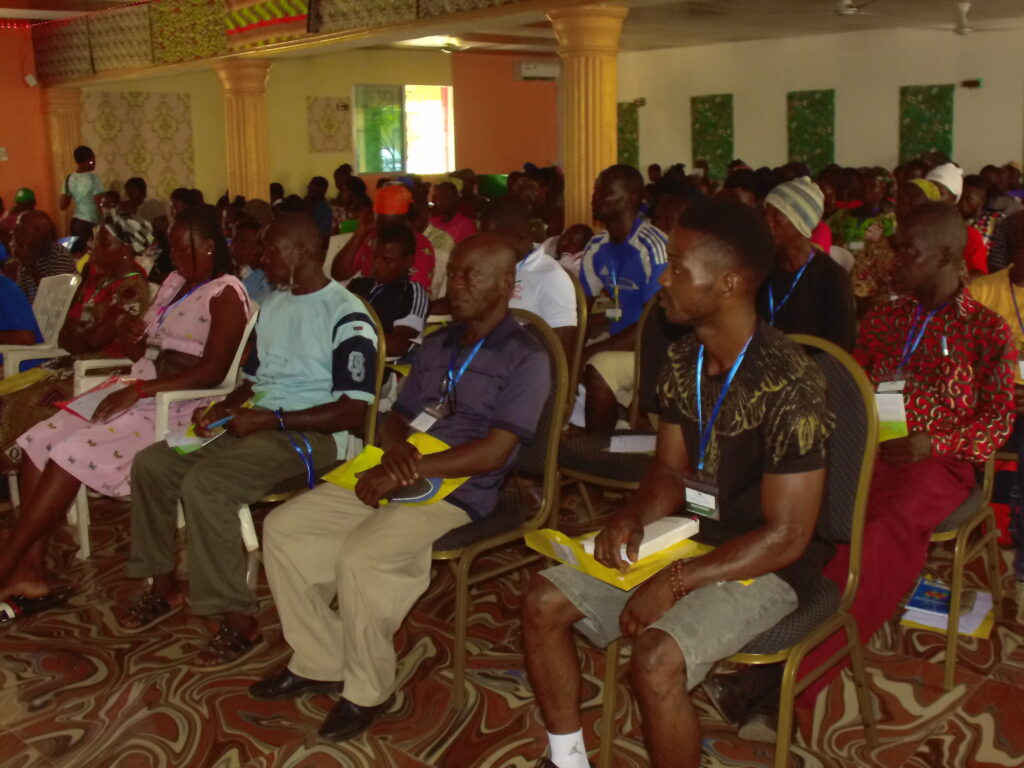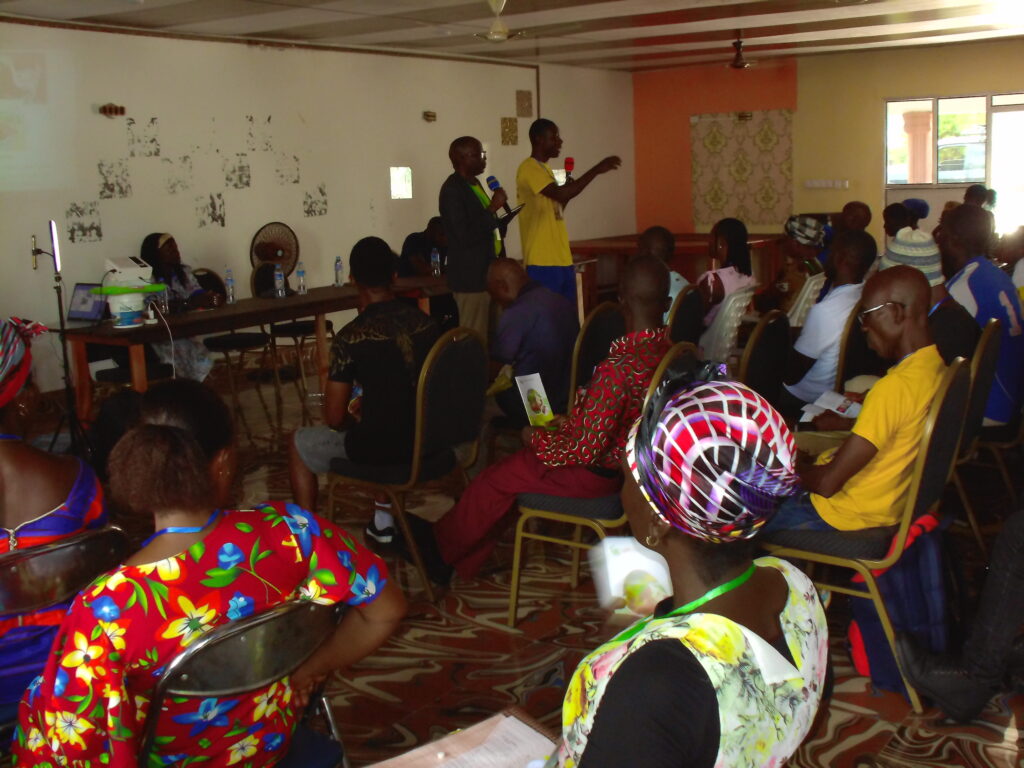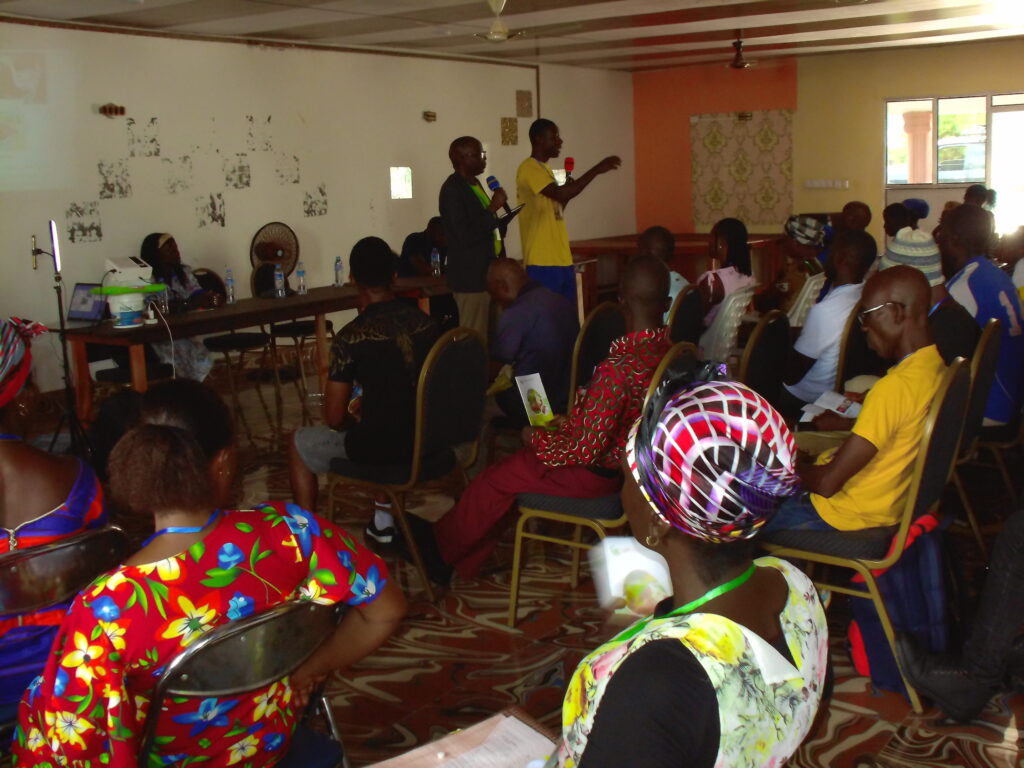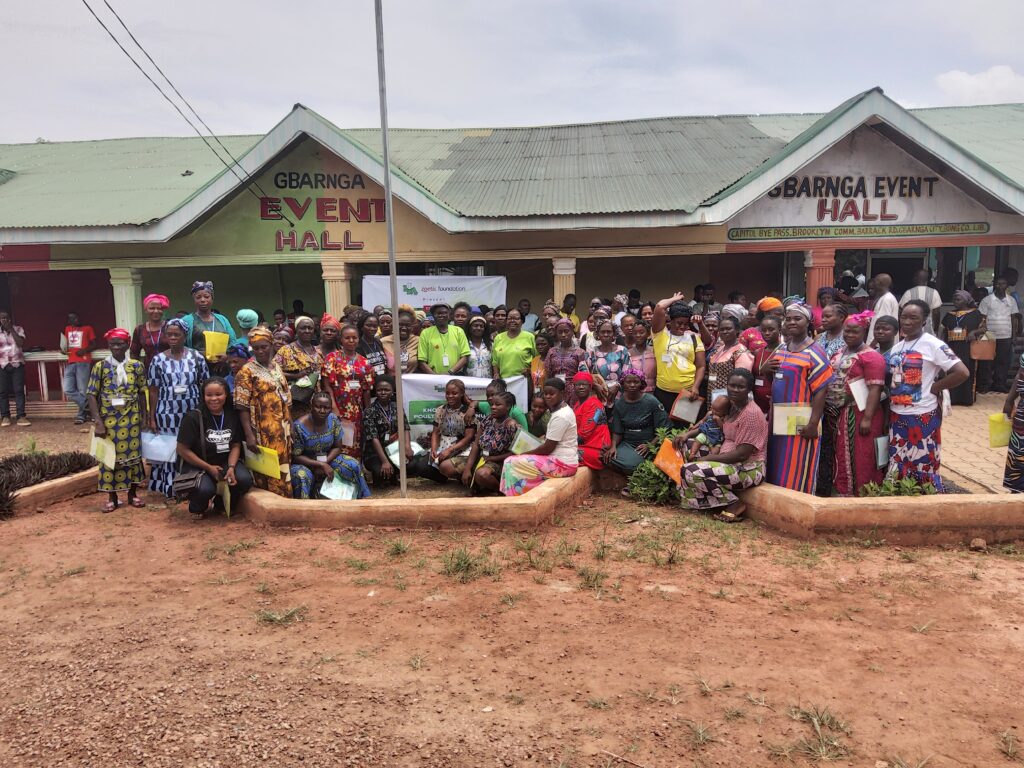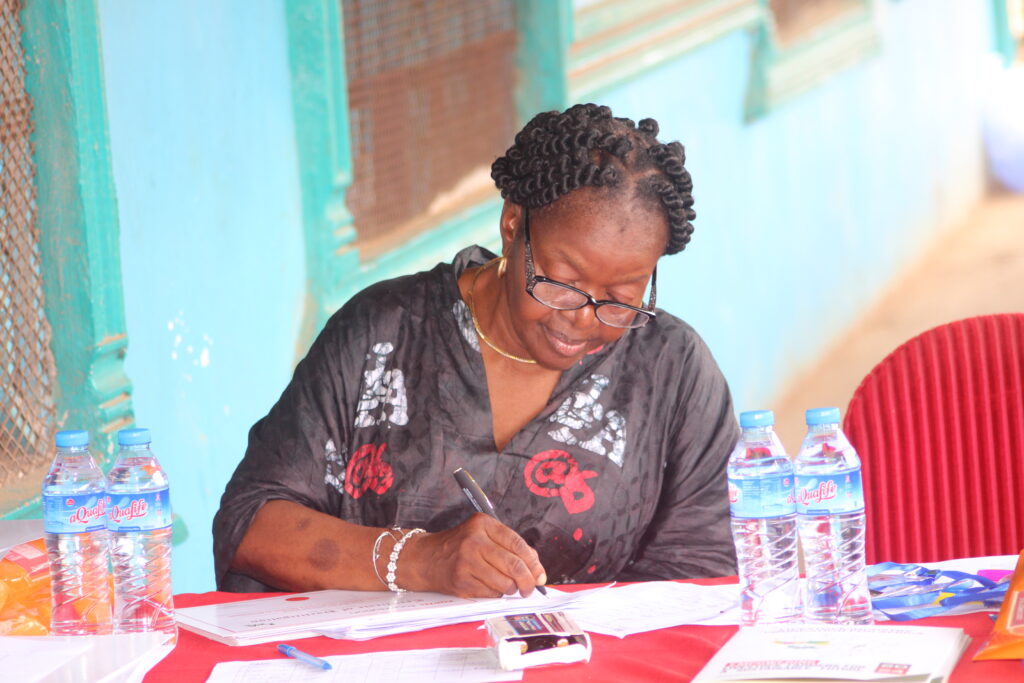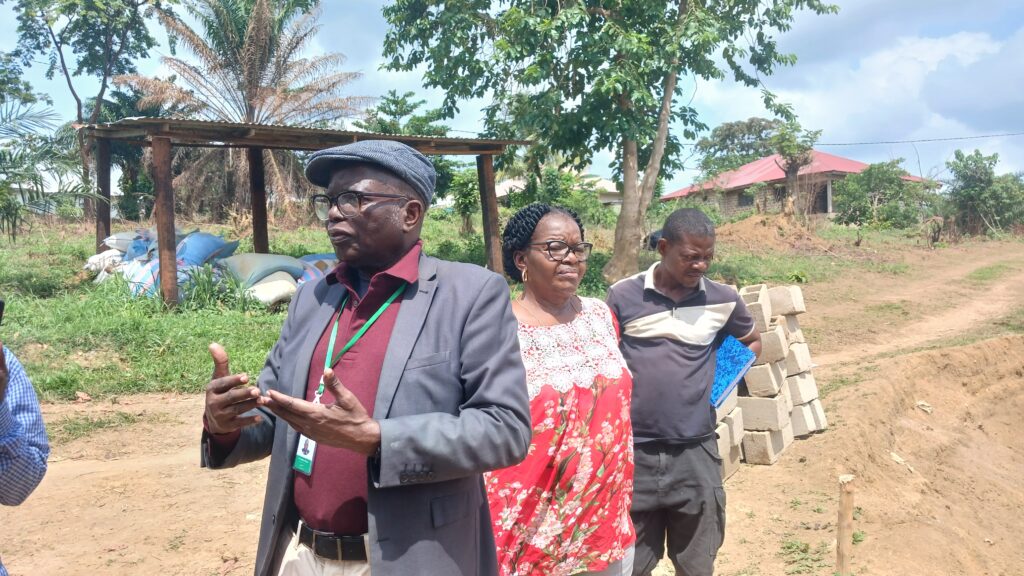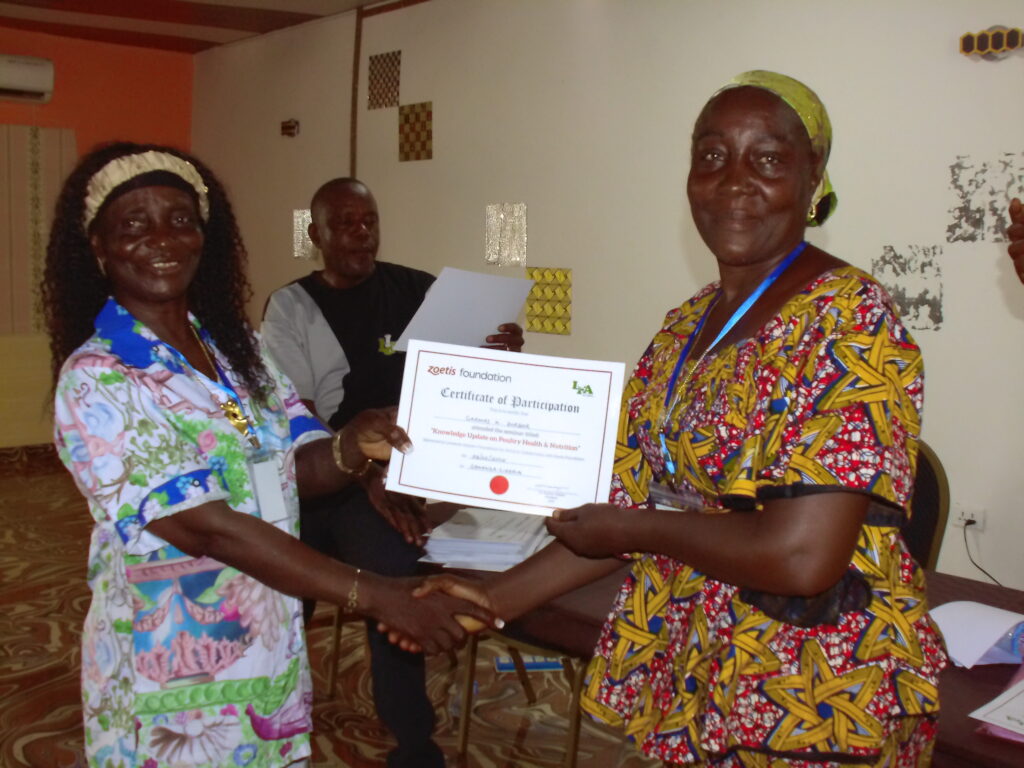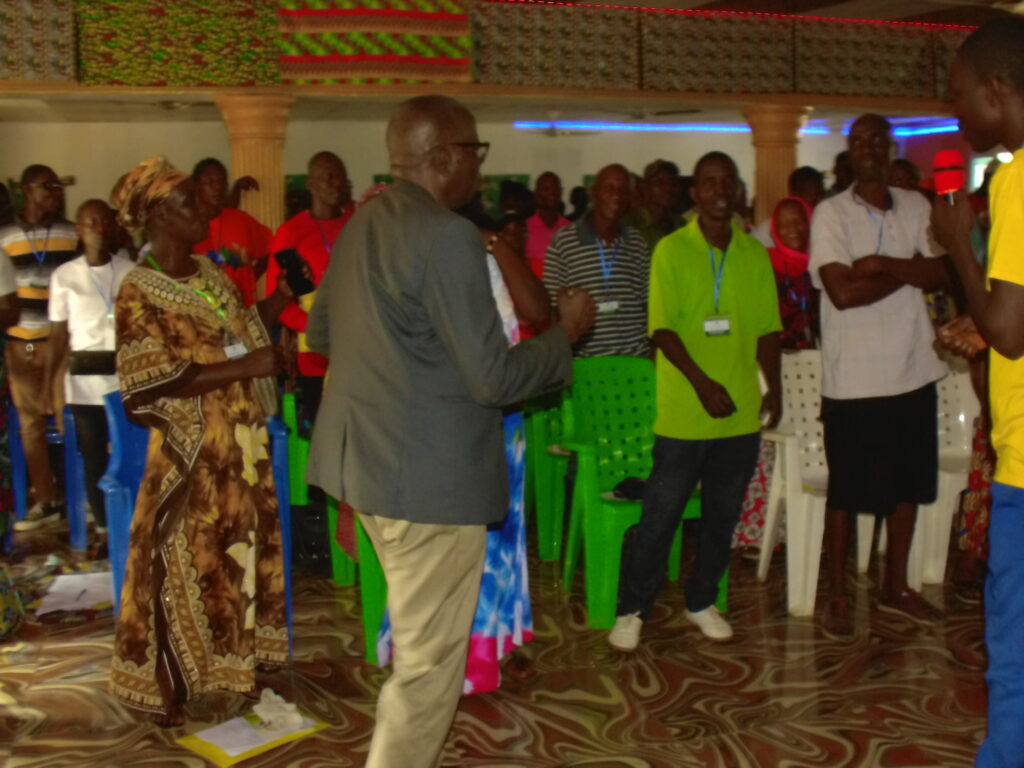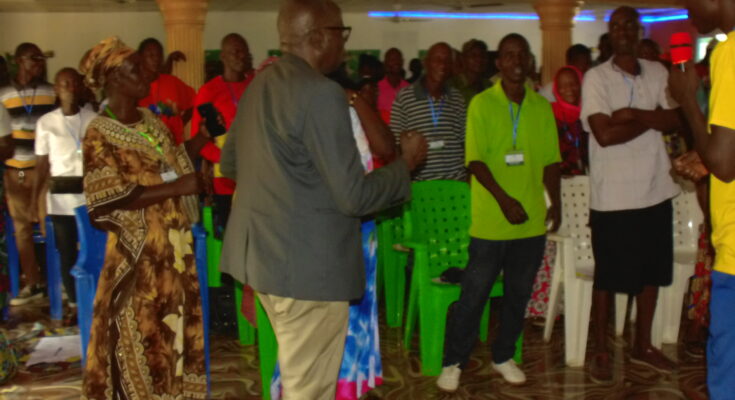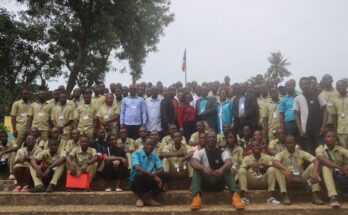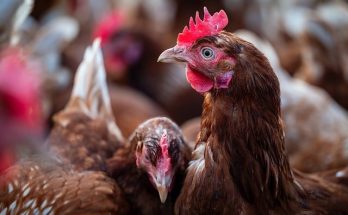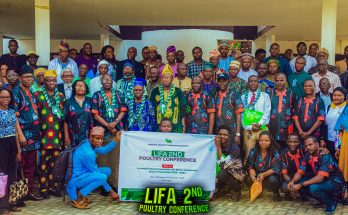Livestock Industry Foundation for Africa (LIFA) continues to advance its mission of transforming poultry production across Sub-Saharan Africa. In May 2025, the LIFA team conducted a Knowledge Update Training on Poultry Health and Nutrition in Liberia, while also engaging with the Ministry of Agriculture to explore strategies for boosting the nation’s poultry industry.
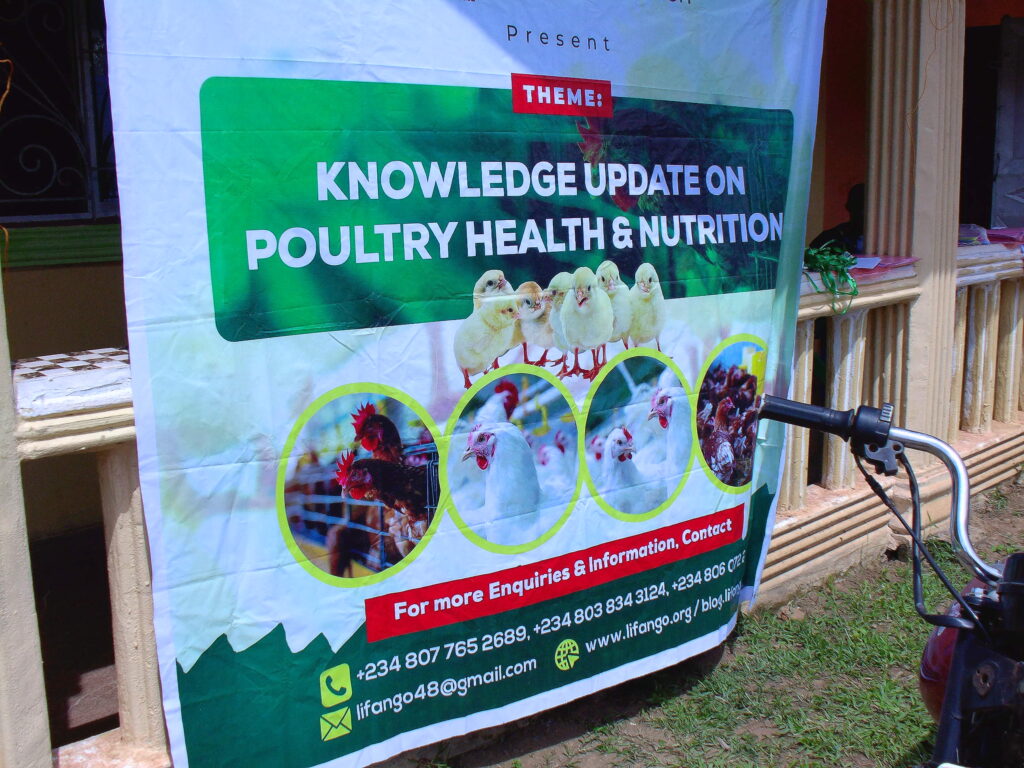
Poultry production in Liberia plays a vital role in food security and livelihoods, yet the sector faces significant challenges. Farmers struggle with:
- A shortage of veterinarians and technical services.
- Limited access to affordable, quality feed.
- Heavy dependence on imports, particularly from Côte d’Ivoire.
These constraints reduce productivity and undermine the potential of poultry as a driver of agricultural growth. LIFA’s intervention came at a crucial moment providing farmers with practical knowledge while fostering dialogue with policymakers on sustainable solutions.
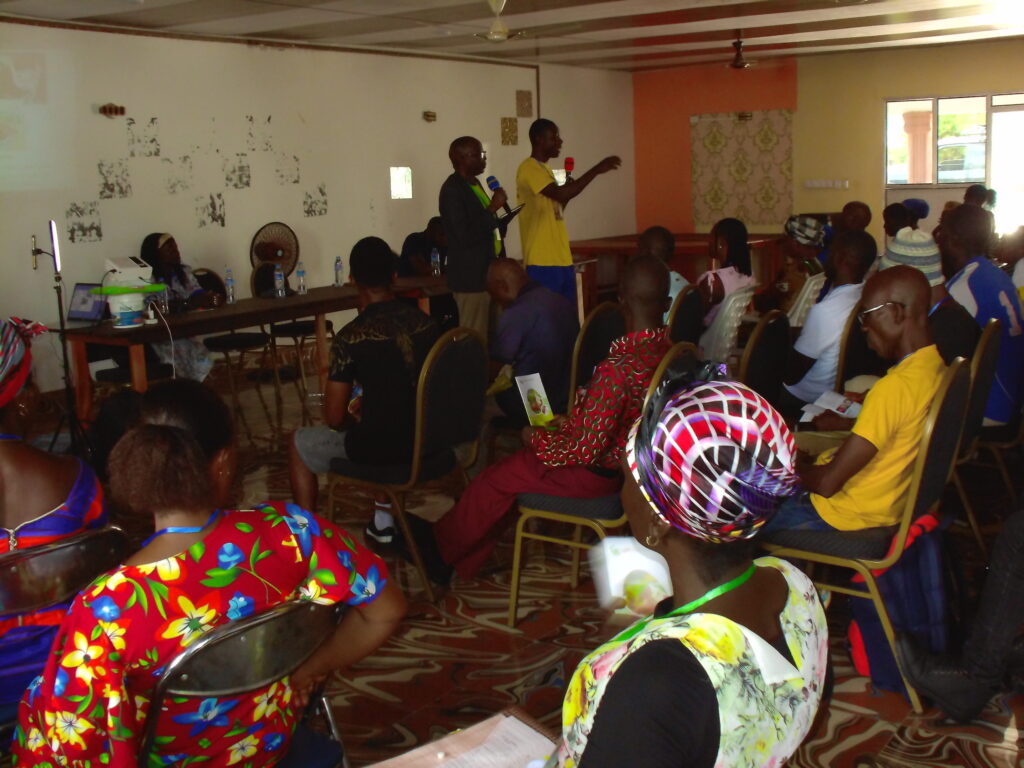
The training brought together farmers, youth, and women entrepreneurs from across Liberia. Participants were equipped with knowledge and skills in:
- Poultry health management and vaccination practices.
- Biosecurity and effective farm management.
- Innovative feed production using locally available materials.
- Climate-smart strategies for sustainable poultry farming.
One participant, a woman farmer from Gbarnga, shared a heartfelt testimony:
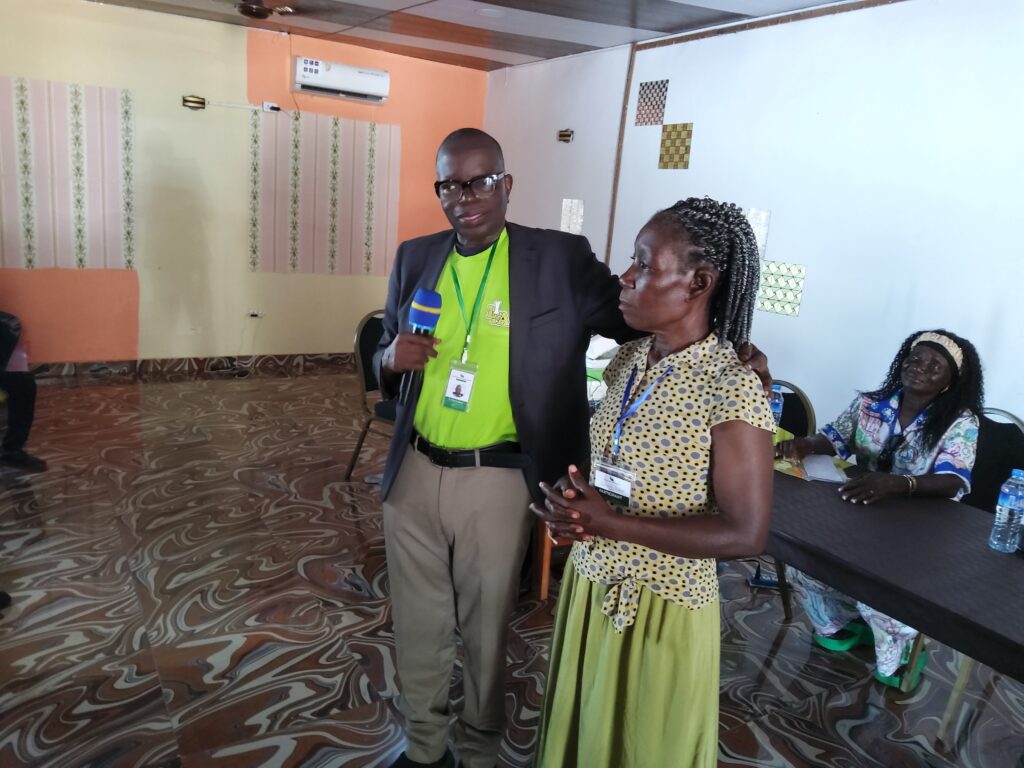
“If I had received this knowledge earlier, especially on how to use local materials to make feed, I would not have lost my 2,000 chicks. They died because I could not get feed on time from Côte d’Ivoire. This training has given me hope for the future.”
Her experience reflects the struggles of many farmers and underscores the urgent need for local feed solutions.
During the sessions, Dr. Stephen Adejoro emphasized the importance of adopting climate-smart poultry feeding strategies as a pathway to resilience and profitability. He highlighted several key points:
- Understanding Climate-Smart Poultry (CSP):
- CSP systems help farmers adapt to climate stress, reduce emissions, and increase productivity.
- In Liberia, this means reducing reliance on imported maize and soybean through local alternatives.
- Local Feed Resources:
- Cassava Peels: Safe inclusion of 10–20% in rations (10% for layers, 15% for growers, 20% for broilers).
- Cassava Leaves: High in protein and antioxidants when dried or fermented.
- Banana Stems/Peels: Useful as supplementary feeds when properly processed.
- Sorghum, Millet, Rice Bran: More resilient cereals suited to Liberia’s climate.
- Best Practices in Processing:
- Rinsing, drying, and grinding cassava peels before use.
- Drying or fermenting cassava leaves to remove toxins.
- Limiting banana stems to 5–10% of feed; banana peels up to 20%.
- Economic and Environmental Benefits:
- Lower feed costs and reduced foreign exchange drain.
- Increased food security and protein availability.
- Job creation in feed processing, transport, and agro-business.
- Environmental sustainability through reduced deforestation and waste recycling.
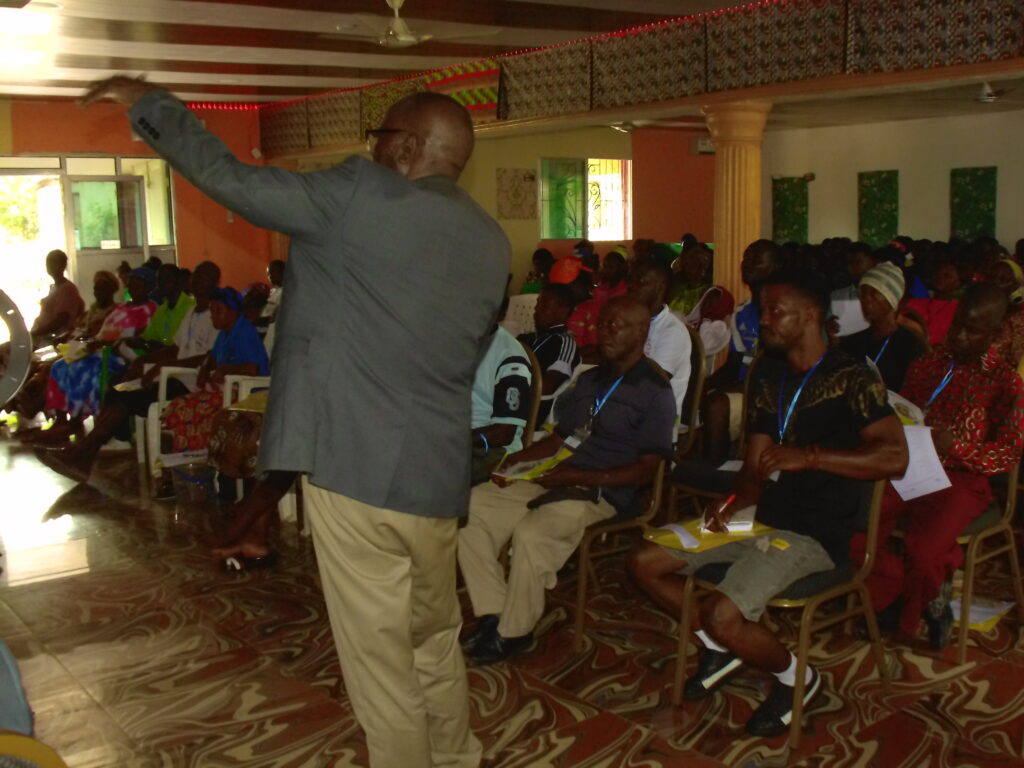
Dr. Adejoro’s message was clear:
“With innovation rooted in local culture and resources, Liberia’s poultry sector can feed both its people and its future.”
Alongside farmer training, LIFA met with officials from the Liberian Ministry of Agriculture to discuss strategies for scaling poultry production. Key priorities included:
- Expanding veterinary and extension services into rural communities.
- Supporting local feed production to reduce dependence on imports.
- Strengthening farmer training, particularly for women and youth.
The Ministry expressed readiness to collaborate with LIFA and partners to address these challenges and unlock the potential of poultry as a growth sector for Liberia’s agriculture.
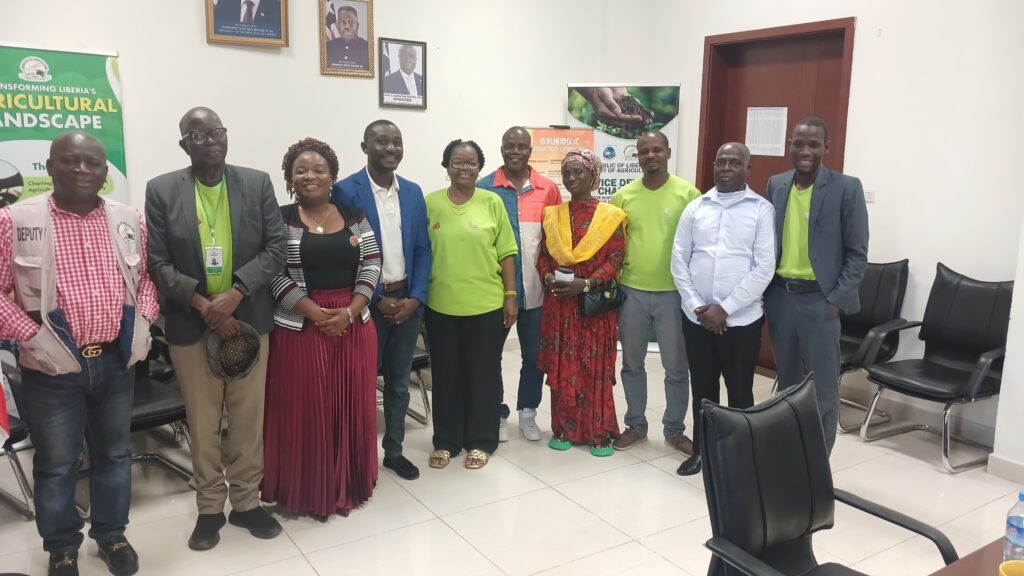
Keeping Chickens Healthy: Biosafety Practices
The training also reinforced the importance of biosafety and biosecurity in poultry farming presented by Mr Thomas; the technical poultry officer of the country:
- Fence farms and limit visitors.
- Provide disinfectant footbaths at entry points.
- Clean and disinfect poultry houses regularly.
- Vaccinate birds and quarantine new stock before mixing.
- Protect feed and water from contamination.
- Control rodents, insects, and wild birds.
These practices reduce disease risks, protect farm income, and keep poultry products safe for consumers.
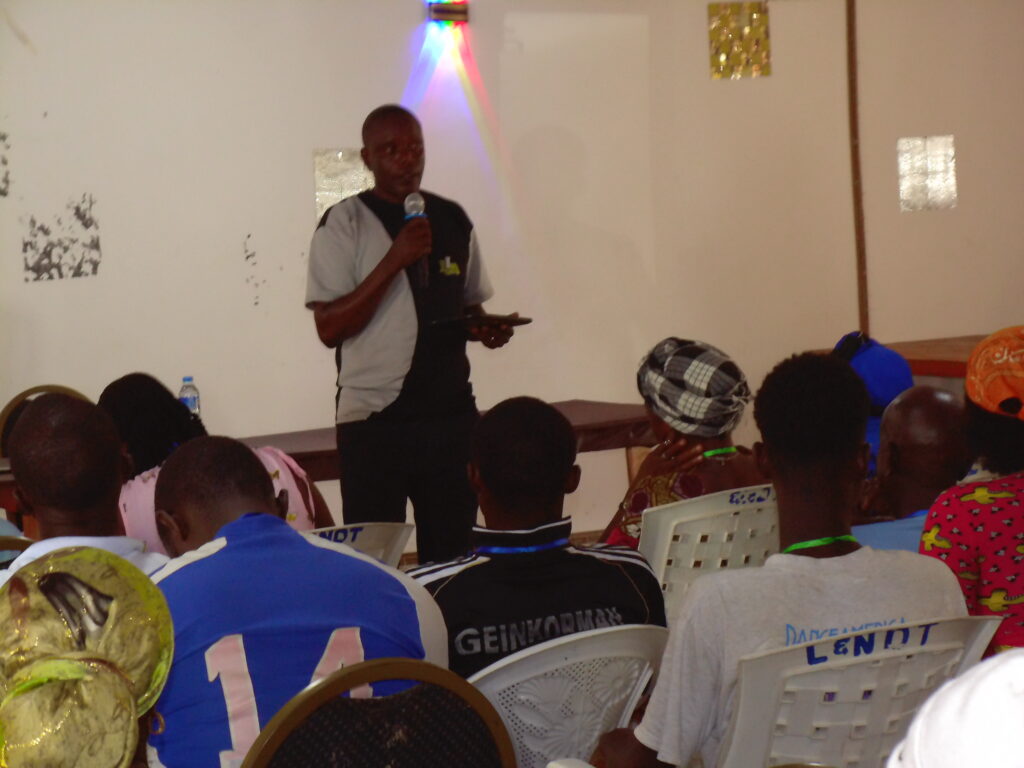
Outcomes and Next Steps
The Liberia programme marked a milestone for LIFA by combining grassroots training with policy-level engagement. Farmers gained actionable knowledge to improve production, while discussions with government paved the way for systemic support.
Looking ahead, LIFA will continue to support Liberian farmers with technical expertise and advocate for policies that strengthen the poultry value chain. Upcoming programmes are scheduled in Rwanda and Uganda later in 2025, extending this impact across the region.
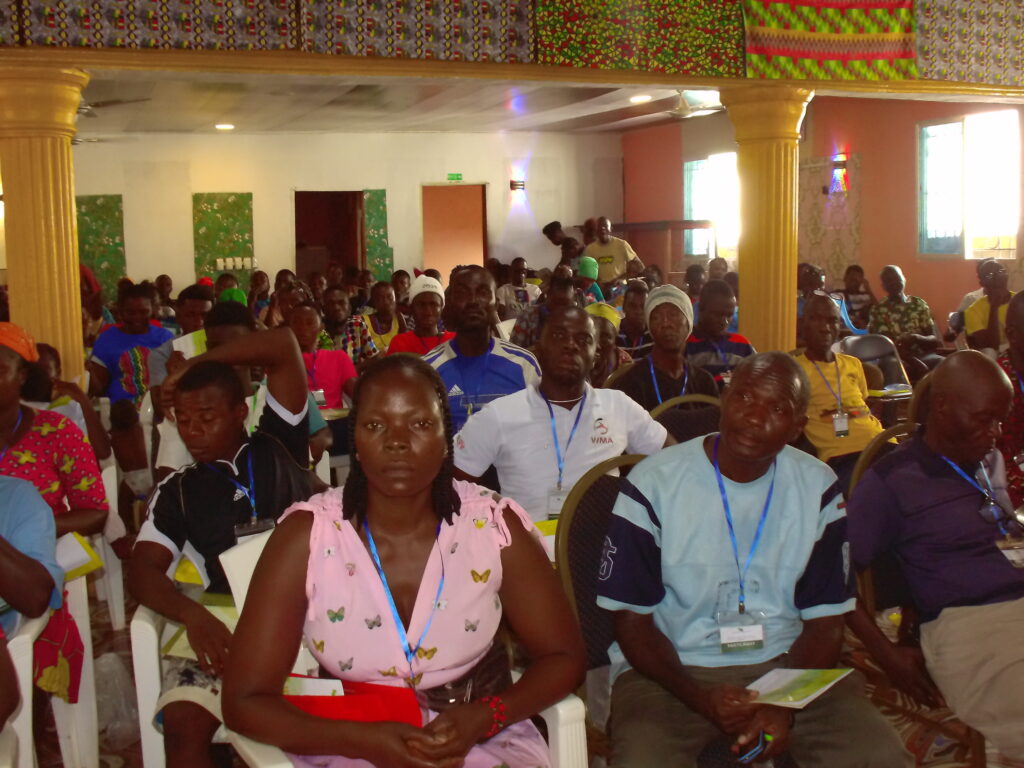
Join the Movement
At LIFA, we remain committed to empowering farmers, promoting climate-smart practices, and building resilient livestock systems across Africa.
Follow our journey at www.lifango.org and be part of the movement to transform poultry farming for sustainable food security and livelihoods.
